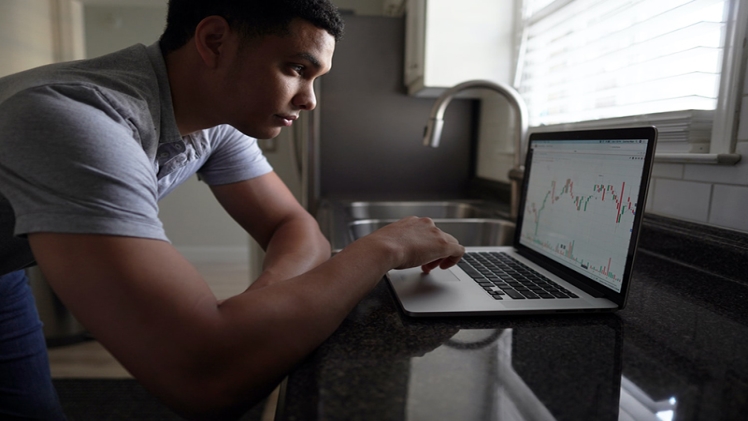When a forex broker persuades investors that they can make incredible gains in the foreign exchange market, it is referred to as a forex scam. There are many frauds, however the following are some of the most typical ones:
The broker who operates a phony online thinkmarkets minimum deposit, accepts deposits, and steals your money
- The high trading costs levied by the broker
- When you ask for your money to be withdrawn, the broker will handle wire transfers for a lot of money.
- When you request a withdrawal of funds, the broker takes an excessively long time to process your payment.
- The broker promoting overly aggressive trading
- To increase profits, the broker may manipulate stop loss orders or ignore buy or sell orders.
Comparing the Forex market to the stock market is not appropriate. The numerous strategies brokers employ to persuade traders to engage in more trading are one of its distinctive features. They might guarantee there will be no commissions, data fees, exchange fees, or regulatory expenses. This offers too much for a novice forex trader to pass up. There is no doubt that the brokers’ goal is to profit off YOU. It just depends on how they use shady offers to get you in.
It is obvious that trading with no transaction fees is advantageous. But occasionally, it’s neither the best offer on the market nor the bargain it seems to be. Actually, it can occasionally be downright miserable.
I’ll now demonstrate how to compare the commission and charge structures of forex brokers to pick the one that will work best for you. And don’t panic; by choosing a broker, you haven’t committed to anything and can change your mind at any time.
Commission systems
Brokers in Forex trading utilize one of three types of commission. They do; spread types include fixed spread, variable spread, and commission depending on a spread percentage. What exactly does “spread” mean? The spread represents the variation between;
the difference between the market maker’s willingness to buy the currency from you (the bid price) and his willingness to sell it to you (the ask price) (the ask price).
You should investigate potential forex brokers before choosing one. It might be really beneficial to read through several online broker evaluations and how-to articles. It can also be beneficial to look at some of the web forums for trader-reviews of brokers because frequently these reviews are completely unbiased and unfiltered.
To obtain a thorough understanding of the online broker under examination, you should browse through numerous of these forums. Also keep in mind that some reviews may not be representative of the average trader’s experience with the broker, and a bad experience may result from the broker’s inexperience in trading or from aggressive or poor decision-making. Look for details about the reviewer’s trading history.
How can you tell if a trader is in fact being duped or is simply inexperienced?
It’s a good idea to keep in mind that some poor trader reviews are due more to the trader’s lack of trading expertise than to an online forex broker offering a subpar service or product when reading trader reviews and trader remarks in online forums. In addition to the aforementioned advice, there are a few other techniques to determine a trader’s level of experience. Look carefully at what the forum post says about a specific trader.
A novice trader can hold onto a spot position for longer than a day and have to “resettle” his account at the full bid/spread price. In an effort to make an excessive profit, a novice trader can also employ a margin of 0.5 to 2 percent rather than the safer 10 percent. Experienced traders are less likely to trade with these types of brokers, therefore inexperienced traders may also be more likely to do so. These brokers often operate dealing desks and have extremely small spreads or very cheap commissions, but they also take a significant cut of every trade. Last but not least, novice traders are more likely to complain about issues with their small accounts and lose their initial $50 to $200 deposits. Larger accounts and more significant trades are more likely to be made by more seasoned traders.
How to safeguard your interests as a forex trader
Before beginning to trade, there are a few key things to keep in mind. Before investing, make careful to read the small print and comprehend the broker’s limitations. What spreads or commissions will the broker apply to a trade? Exist any unstated expenses or fees, such as settlement costs, wire transfer costs, account maintenance costs, etc.? Examine your trades to determine the order execution delay. When you decide to liquidate your account, find out how long it takes to get paid. Consider it a warning and avoid investing with your broker if they won’t allow you withdraw your funds right away.
Conclusion
Do your research before opening an account with an online thinkmarkets minimum deposit since unfortunately, forex scammers exist. By reviewing online user forums and reviews, you can choose the broker who is the best fit for you. Read the small print and become knowledgeable about a broker’s trading terms and conditions. If unsure, get in touch with the broker’s customer service. Open a practice account before trading with real money if you are new to online forex trading. Post a thorough account of your encounter online so that others can read it if you do come across a currency scam.

